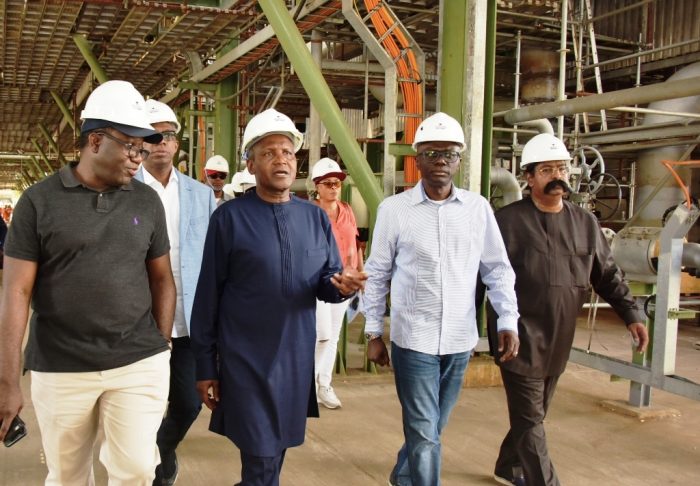AFRICA'S richest man Alhaji Aliko Dangote has outlined an ambitious 10 year Nigerian industrialisation programme which he says the nation's manufacturing sector needs to adhere to if the country is to get out of its current economic rut.
Nigeria is currently facing a balance of trade and balance of payment crisis due to the fact that she exports very little and imports almost everything.
A mono-economy heavily dependent on crude oil, which accounts for over 90% of government revenue, Nigeria is facing a debt crisis as the amount it uses to service debts has now grown to an unsustainable level.
Numerous international agencies and think tanks have warned the Nigerian government that the only way out of the impasse is to step up local manufacturing. Several papers have been presented in which it has been highlighted that if Nigeria manufacturers the domestic goods she uses, it will curb the need for expensive imports and the need to procure foreign debts to fund such purchases.
Adding his voice to the debate, Alhaji Dangote, who spoke at the second Adekola Odutola Lecture organised by the Manufacturers Association of Nigeria in Lagos yesterday, outlined specific targets the manufacturing sector needs to meet. He added that to promote industrialisation in the manufacturing sector’s contribution to gross domestic product (GDP) should be more than double to 20%, up from the current 9% within the next decade.
Alhaji Dangote said: “Nigeria needs to, henceforth, intensify efforts at promoting industrialisation with specific focus on the attainment of the following targets in the next 10 years. We need 15% manufacturing sector growth, 20% manufacturing contribution to GDP, 15% growth in export of manufactured products and 10% increase in the share of manufacturing to total export merchandise.
" We also need stronger inter-industry linkage between SMEs and large corporations, improved manufacturing contribution to government tax revenue and a 20% increase in manufacturing employment. Industrialisation facilitates the global competitiveness of a nation in the production of processed and manufactured goods by linking industrial activity with primary sector, domestic and foreign trade, and service activities.
“To achieve industrialisation goals, it is necessary for a nation to formulate plans and policies that will enhance and sustain industrial development. Sustainable industrial development involves establishment of a conducive environment to encourage investment and ensure the efficient usage of resources to increase productivity and growth of the nation.
“The creation of a pathway to steady and sustained industrial growth entails the deployment of industrialisation-centric strategies and policies, the promotion of the national manufacturing philosophy, securing the buy-in of government for successful implementation of the agenda and the promotion of smart manufacturing. We also need the establishment of a robust framework aimed at improving the business environment."
"In addition, we need the extension of comprehensive and integrated support to priority sectors with strong linkages and growth potentials as espoused with particular emphasis on improved value addition and export of manufactured products. This also entails the development of a strong partnership with the private sector within and outside the country.”







